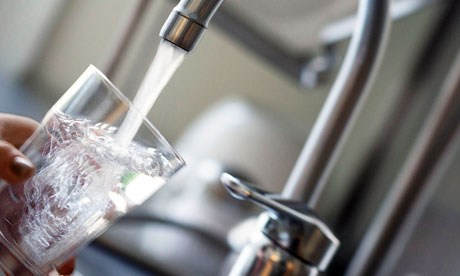
It sounds like science fiction: a consultant psychiatrist in Ireland proposed last week that mass medication could be used to make us all happier. Aldous Huxley had his soma; Dr Moosajee Bhamjee, former Labour party politician (he accidentally won a seat while campaigning for "the protest vote" in Clare in 1992), says his government should add lithium to the water supply.
Lithium doesn't have quite the romantic appeal of the recreational drugs people take in hopes of getting happier. In fact Bhamjee is not offering us mind-altering experiences. This is a pragmatic option, suited to our depressing economic circumstances. Lithium in the taps, he says, can cut the suicide rate.
The substance is used in psychiatric medicine to treat episodes of mania in people with bipolar disorder, also known as manic depression. In the raw, lithium is a soft, silver-white alkali metal, found in some foods and, in some places, the drinking water. Studies have suggested that in places where people get trace amounts of lithium from the taps, the suicide rate is lower than elsewhere.
In 1990, a study in 27 counties in Texas found lower rates of not only suicide but also homicide and rape in those where the drinking water contained lithium. In 2009, research in Japan found lower suicide rates in areas with lithium in the water. Professor Allan Young from Imperial College has called in the British Journal of Psychiatry for more investigation, saying that "the eventual benefits for community mental health may be considerable".
But anyone who has tangled with the anti-fluoride campaign will realise that lithium lobbyists will have a long, hard road to travel.

